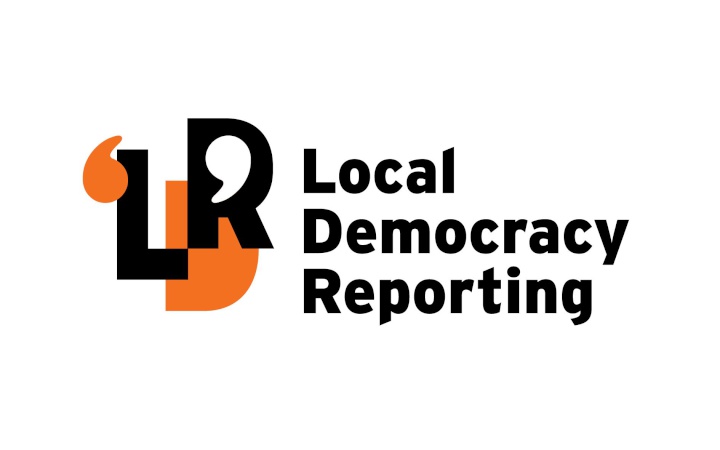
Rotorua has hit its highest number of new build homes in 14 years, bucking the national trend.
It comes as a new assessment finds the city has more than enough future housing capacity, a turnaround from shortage projections.
More than 500 homes were built in the city last year, about half of them social housing or affordable rentals.
Rotorua Lakes Council destination development group manager Jean-Paul Gaston told an April meeting many of the 522 houses were built in the central and western areas.
Net new homes reached 483 after accounting for homes removed to make way for developments.
It was the third year in a row that new home numbers peaked since 2011, and another 600 homes were in the pipeline for the next couple of years.
Data provided to Local Democracy Reporting showed 304 of the new houses were built in Rotorua's western and central areas:
- 253 in the western area in 2024, up from 199 in 2023
- 51 in the central area in 2024 compared to 38 in 2023.
The council had a goal of building 3000 new homes in those areas by 2032.
After the meeting, Rotorua Mayor Tania Tapsell said improving housing options for the city remained a top priority for the council as it would have "huge benefits for our community".
"These housing developments are not just public homes, but all types of homes, including affordable rentals and retirement options for our older residents.
"I know the economy has been uncertain but despite slower markets elsewhere, we've got a strong number of building consents coming through in Rotorua."
Tapsell said the council would continue to work to unlock land and opportunities for new homes.
In February, Local Democracy Reporting wrote that $259 million worth of new residential and commercial buildings were consented in Rotorua in the year to September - more than double the $112.2m of consents issued in 2023.
According to Stats NZ, new dwelling consents nationwide in 2024 were down 9.8 percent on 2023.
Gaston wrote in the meeting's agenda the city avoided the national decline in building numbers because of multi-year investment by Kāinga Ora and the Ministry of Housing and Urban Development, support for Māori affordable rental development, and significant staged developments such as Freedom Village.
The recent fast-track consenting of a new Summerset lifestyle village in Fairy Springs provided additional future certainty of 260 housing units within the short/medium-term, Gaston wrote.
Other projects included the first 16 homes in the Ōwhata Kōhanga Rākau iwi-led housing development on the east side of Rotorua, which opened in November and will eventually have 93 homes including 38 affordable rentals and kaumātua housing.
A council spokesperson said it knew of 262 among last year's 522 new builds that were social housing or affordable rentals.
Among these were 17 two-bedroom and three three-bedroom homes on Lake Rd. This Kāinga Ora development opened in May.
A Te Tūāpapa Kura Kāinga - Ministry of Housing and Urban Development (MHUD) spokesman said 101 homes were built as part of MHUD housing programmes, including 80 iwi-led Māori affordable rentals.
Kāinga Ora added 104 new social housing places to its stock in Rotorua.
The spokesman said Rotorua's housing shortage resulted from a rapid increase in the resident population from 2013 and too few houses being built to meet the demand.
The rental market tightened and rents rose relative to incomes, leading to more households on the Housing Register and large numbers in temporary or emergency accommodation.
This peaked at 699 households in December 2021.
The ministry partnered with others including iwi and the council to make a plan for Rotorua including short-term and more permanent housing solutions.
The number of households in temporary and emergency housing had dropped to 96 as of March.
"This is a result of the government's significant investment in Rotorua."
The city remained a priority for the Ministry with a "strong pipeline" of additional housing places to be delivered - 170 state homes by mid-2025 and another 72 by July 2026.
The government was criticised for using Rotorua's motels as a "dumping ground" for the country's homeless during peak pandemic years, but consistently denied actively bringing in out-of-towners.
New housing assessment finds capacity in surplus
The last Housing and Business Development Capacity Assessment in 2021 projected the city was heading for a 10,000-home shortage in the long-term, by 2050.
An updated assessment from 2024 presented to a council meeting on Wednesday found an overall surplus of 300 - 1600 dwellings short-term, 2200 - 5200 medium-term, and 10,100 - 24,700 long-term.
This turnaround was broadly credited to work identifying and preparing new greenfield (undeveloped) land for housing, and enabling intensification.
"This puts the district in a good position to respond to what the community needs as it grows and to make adjustments if needed," Gaston said in a statement.
LDR is local body journalism co-funded by RNZ and NZ On Air.



 Gordon Campbell: On Why Leakers Are Essential To The Public Good
Gordon Campbell: On Why Leakers Are Essential To The Public Good New Zealand Defence Force: The Latest Update On The HMNZS Manawanui Response
New Zealand Defence Force: The Latest Update On The HMNZS Manawanui Response NZCTU: NZCTU Release Detailed Budget 2025 Analysis
NZCTU: NZCTU Release Detailed Budget 2025 Analysis Department of Conservation: DOC Reveals Surprising Toilet Paper Stats
Department of Conservation: DOC Reveals Surprising Toilet Paper Stats NZ Government: Consultation Opens On Sweeping Overhaul Of Primary Sector Regulations
NZ Government: Consultation Opens On Sweeping Overhaul Of Primary Sector Regulations Manaaki Whenua Landcare Research: How Have Our Garden Birds Been Tracking Since 2014?
Manaaki Whenua Landcare Research: How Have Our Garden Birds Been Tracking Since 2014? NZ Labour Party: Govt Driving Away Kiwi Innovators And Scientists
NZ Labour Party: Govt Driving Away Kiwi Innovators And Scientists


